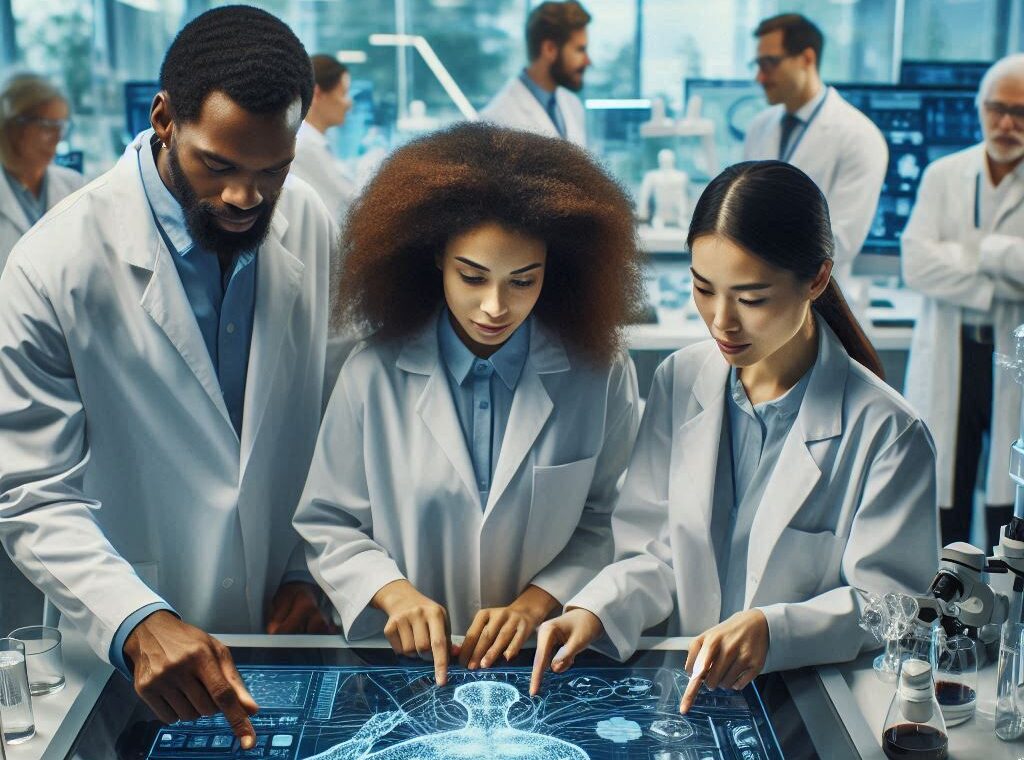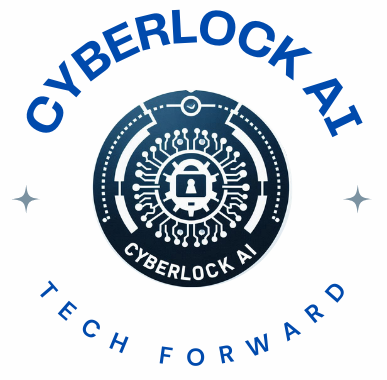 Artificial Intelligence, or AI as most of us call it, is quite the buzzword these days. But what exactly do we mean when we toss around terms like AI in the context of scientific discovery and healthcare? Well, it’s all about teaching machines to learn from data and mimic tasks usually requiring human smarts. It’s like having another brain, powerful and swift, working alongside scientists and healthcare experts to achieve what was once thought impossible.
Artificial Intelligence, or AI as most of us call it, is quite the buzzword these days. But what exactly do we mean when we toss around terms like AI in the context of scientific discovery and healthcare? Well, it’s all about teaching machines to learn from data and mimic tasks usually requiring human smarts. It’s like having another brain, powerful and swift, working alongside scientists and healthcare experts to achieve what was once thought impossible.
Picture this: a world where complex data doesn’t need legions of scientists poring over it for years but can be crunched in mere hours. AI steps right in to make that happen. It’s been making waves in this space for a while now, growing from its sci-fi origins into a real-world powerhouse. We’re talking about a journey that’s fascinating, with AI taking on bigger roles in labs and hospitals alike.
Why is AI such a game-changer in these fields? It essentially acts as a connective tissue, linking up diverse pieces of information into a coherent whole. Think of it as the ultimate research buddy who never sleeps, making sense of data and predicting outcomes with a level of accuracy that’s hard for us humans to match.
While AI isn’t about replacing experts, it sure amps up their abilities. By handling repetitive or highly complex tasks, AI allows scientists and doctors more time to focus on what they do best – problem solving and innovating. Essentially, AI is like having a super assistant who never asks for a coffee break, always ready to assist you on the next big quest.
Breakthroughs in Scientific Discovery through AI
AI has opened doors to unimaginable discoveries by giving scientists the tools to analyze vast swathes of data like never before. When it comes to finding hidden patterns and relationships in mountains of data, AI is your go-to mate. It excels at sifting through noise to find the signal, turning data into insights that lead to scientific breakthroughs.
One of the crown jewels of AI applications is genomics and drug discovery. With AI, researchers can predict how different compounds interact with targets in the human body, making drug development way quicker and less costly. It’s like having a super sleuth on your team, tirelessly searching for that critical clue that could lead to the next big thing in medicine.
AI is also making significant strides in environmental and space studies. From climate modeling to identifying planets that could support life, AI algorithms are transforming how we understand and interact with the universe. These smart systems can process information from satellites and telescopes, providing insights that humans alone might miss.
There are plenty of success stories where AI has transformed traditional methods in science. Whether it’s speeding up the research process or improving the accuracy of experimental predictions, AI proves itself as an essential partner in discovery. These stories stand as evidence of AI’s potential to revolutionize scientific inquiry and push the boundaries of what we know.
Transformative Impact of AI in Healthcare
AI in healthcare is reshaping the landscape faster than you can say ‘innovation’. It’s transforming medical diagnostics by spotting diseases earlier and with greater accuracy than ever before. AI algorithms can analyze medical images and patient data to identify patterns that might not be obvious to the human eye, offering a powerful new tool for healthcare professionals.
Personalized medicine is another area where AI truly shines. By analyzing a person’s genetic makeup and health history, AI helps create customized treatment plans tailored to the individual’s unique needs. It’s like having a personal health advisor, ensuring that treatments are as effective and as precise as possible.
AI’s reach extends to the surgical suite and beyond, thanks to robotics. These AI-driven machines provide surgical assistance that’s both precise and minimally invasive, leading to quicker recovery times and less risk of complications. Plus, in rehabilitation, AI-powered systems can adapt therapy programs according to a patient’s progress, optimizing outcomes and enhancing recovery.
On the operational side, AI systems are improving patient care efficiency tremendously. From managing hospital workflows to scheduling appointments, AI optimizes everyday processes, allowing healthcare providers to focus more on patient interaction and care delivery. It feels like a backstage genius making everything run smoother and more efficiently.
Ethical Considerations and Future Prospects
As artificial intelligence continues to weave itself into the fabric of science and healthcare, navigating ethical waters is more crucial than ever. Maintaining patient privacy and data security tops the priority list. While AI enables the collection and analysis of vast amounts of data, ensuring this information is safeguarded against breaches and misuse is imperative.
It’s easy to get caught up in the excitement, but with AI’s rapid advancement comes the risk of over-reliance. There’s a fine line between harnessing AI’s potential and depending too much on the technology. Staying mindful of the limitations can prevent missteps and ensure AI remains a helpful tool rather than a crutch.
The synergy between human expertise and AI innovation lies at the heart of effective AI deployment. Human oversight is vital for maintaining ethical standards and ensuring AI systems make decisions aligned with human values and social norms. This collaborative spirit is what will drive AI’s successful integration into every aspect of scientific discovery and healthcare.
Looking ahead, emerging AI trends promise even more transformative possibilities. As technology advances, the potential applications in healthcare and science will continue to broaden, paving the way for discoveries we can only dream of today. Staying informed and prepared for these changes will be key to leveraging AI’s full potential in a responsible and ethical manner.
